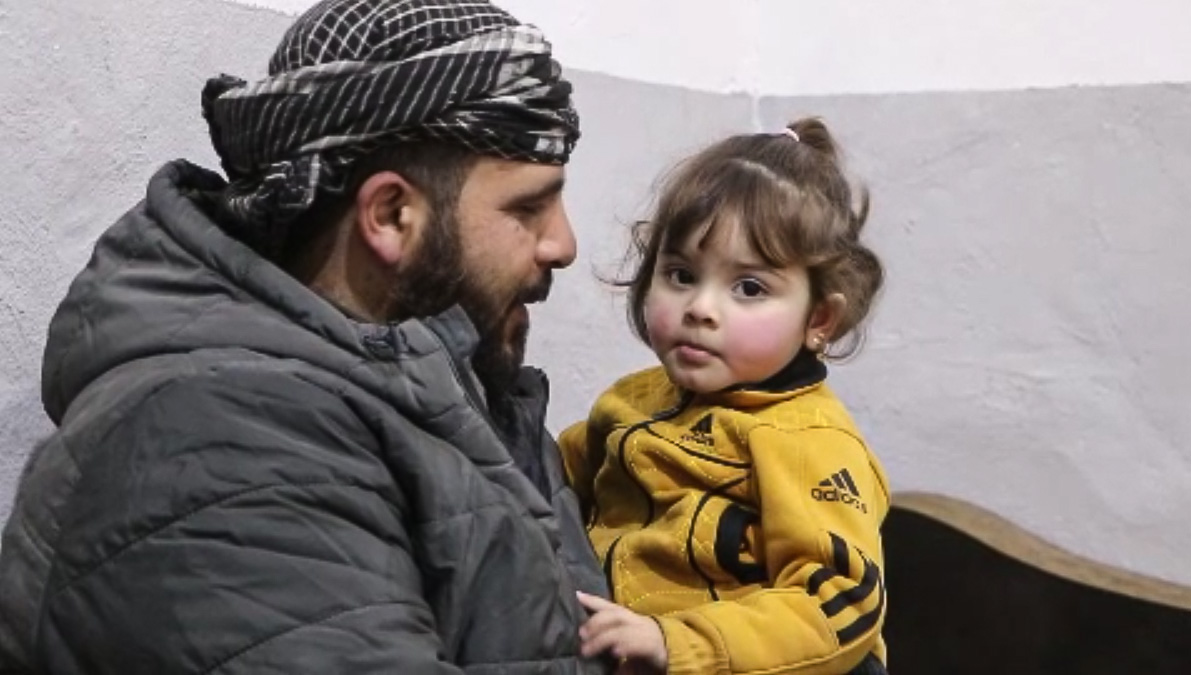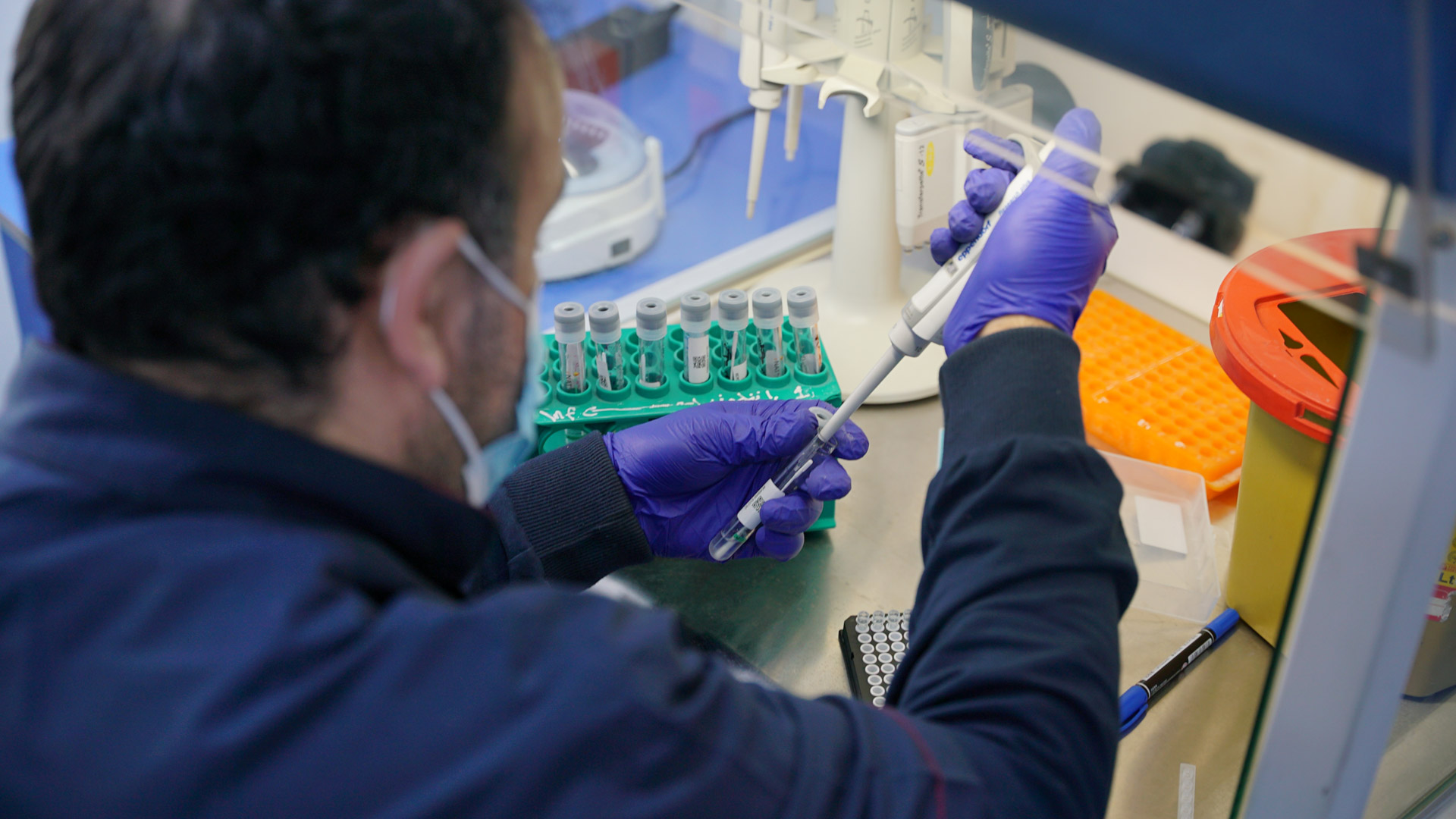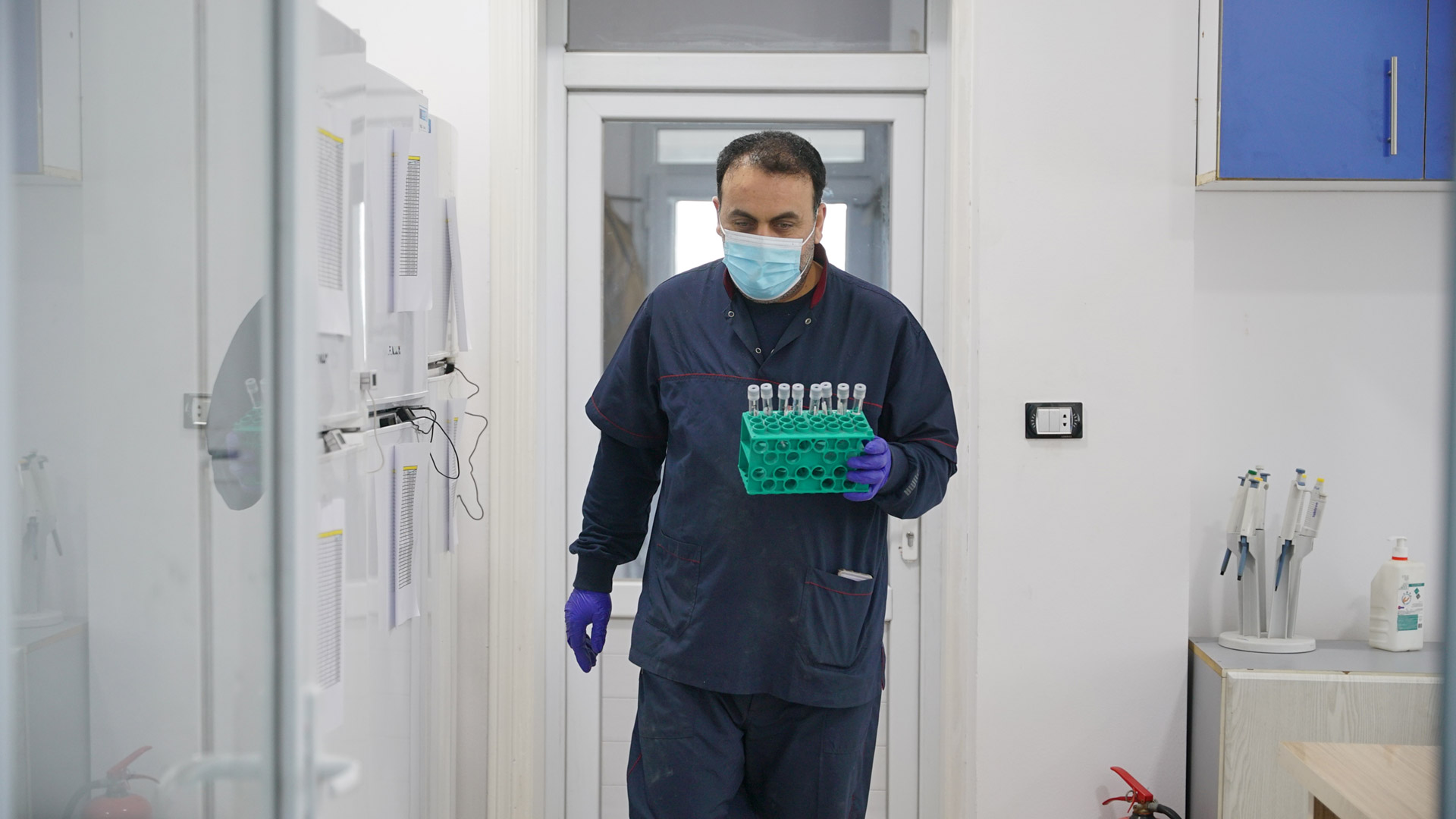 Lana sits safely in her father’s arms after recovering from meningitis in Aleppo. Photo credit: WHO26 August 2025, Aleppo, Syrian Arab Republic – Three-year-old Lana has never known life outside of conflict. Born in northern Aleppo after her family fled violence, she has grown up in a crowded displacement camp where families share tents, clean water is scarce, and the risk of disease is high.
Lana sits safely in her father’s arms after recovering from meningitis in Aleppo. Photo credit: WHO26 August 2025, Aleppo, Syrian Arab Republic – Three-year-old Lana has never known life outside of conflict. Born in northern Aleppo after her family fled violence, she has grown up in a crowded displacement camp where families share tents, clean water is scarce, and the risk of disease is high.
Her father still remembers the night her fever spiked.
“We were terrified and worried about her. At first, we thought it was just a simple illness and tried to give her home remedies. When she didn’t improve, we took her to a nearby hospital,” he recalls.
There, doctors diagnosed Lana with meningitis – a dangerous infection that can be fatal without urgent treatment. She was admitted immediately and placed under close observation. For 14 days, she received intensive care, including medication to control her fever and rehydration to strengthen her fragile body.
“The team was very cooperative; they answered all our questions regarding the treatment and even gave us clear instructions on how to prevent such cases in the future,” her father says.
Lana recovered. She left the hospital holding her father’s hand, ready to return to her tent in the camp, her life no longer under immediate threat.
Building stronger protection against disease
 A technician prepares samples for testing at an EWARN laboratory supported by WHO. Photo: WHOLana’s recovery is part of wider efforts to strengthen health services in Syria’s displacement camps and prevent the spread of infectious diseases. With generous funding from the European Civil Protection and Humanitarian Aid Operations (ECHO), WHO and health partners have been supporting Syria’s disease early warning system (known as the Early Warning, Alert and Response Network, or EWARN) – a network of health facilities and laboratories that tracks illnesses, verifies alerts and helps stop outbreaks before they spread.
A technician prepares samples for testing at an EWARN laboratory supported by WHO. Photo: WHOLana’s recovery is part of wider efforts to strengthen health services in Syria’s displacement camps and prevent the spread of infectious diseases. With generous funding from the European Civil Protection and Humanitarian Aid Operations (ECHO), WHO and health partners have been supporting Syria’s disease early warning system (known as the Early Warning, Alert and Response Network, or EWARN) – a network of health facilities and laboratories that tracks illnesses, verifies alerts and helps stop outbreaks before they spread.
“Our role doesn’t stop at treatment – we visit families every week to look for missed illness cases and make sure children like Lana are not overlooked,” explains a health worker with the Assistance Coordination Unit (ACU), one of the health partners WHO works closely with on the early warning system.
“In just 2 months this year, almost every sentinel health facility in Idlib and Aleppo reported regularly on common illnesses such as diarrhoea, measles and meningitis. Our teams were able to verify alerts within a day and make nearly 200 visits to health centres to support staff. This vigilance means suspected outbreaks can be caught early and families are better protected,” says Rosa Crestani, Team Lead for the WHO Field Presence Office in Gaziantep, Türkiye.
During this period, health workers tested 90 samples from people showing symptoms of serious illness. Nine measles cases and several influenza cases were confirmed quickly, allowing measures to be taken before the diseases could spread further. In most cases, results reached doctors within 2 days, giving them crucial time to protect vulnerable communities.
A healthier future within reach
 A technician carries samples for analysis at an EWARN laboratory supported by WHO. Photo credit: WHOBy supporting Syria’s disease early warning system, the project ensures that suspected cases like Lana’s can be detected, referred and treated before they spiral into outbreaks. In parallel, health teams supported under the project visit camps regularly to identify early warning signs, making sure vulnerable families do not slip through the cracks.
A technician carries samples for analysis at an EWARN laboratory supported by WHO. Photo credit: WHOBy supporting Syria’s disease early warning system, the project ensures that suspected cases like Lana’s can be detected, referred and treated before they spiral into outbreaks. In parallel, health teams supported under the project visit camps regularly to identify early warning signs, making sure vulnerable families do not slip through the cracks.
This lifeline will continue. Thanks to renewed ECHO funding, support for the early warning system in Idlib and Aleppo will run until the end of 2025, helping Syria to maintain vital surveillance and response capacity during a critical period of transition to a national integrated disease surveillance and response system.
As Syria takes steps towards recovery after 14 years of crisis, stories like Lana’s show the importance of investing in disease surveillance and early response. Each child who regains their health is a reminder that a more resilient, healthier future for Syrian families is within reach.
*Name changed




